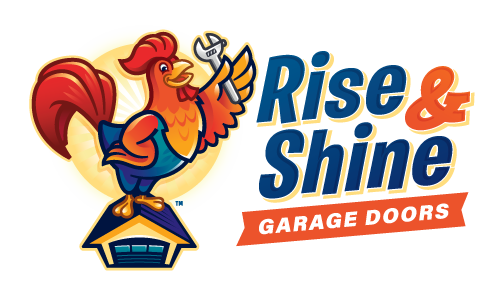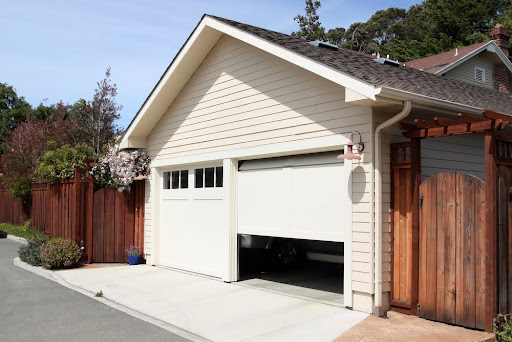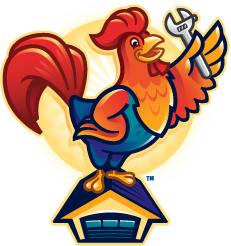Have you ever found yourself in a rush, trying to leave your house, only to find that your garage door won’t close? It’s a common issue that many homeowners face. The convenience of an automatic garage door opener suddenly becomes frustrating. You’re left wondering, “Why won’t my garage door close?” This problem can stem from various issues, ranging from minor to significant repairs.
In this guide, we’ll walk you through the potential reasons your garage door might be acting up and offer some troubleshooting tips. From checking the sensors to inspecting the track and rollers, we’ll help you identify the problem and decide if you need professional help. Read on to understand more about keeping your garage door in perfect working condition.
Signs You Have a Broken Garage Door
Dealing with a broken garage door can be frustrating and inconvenient, especially when you’re unsure of the underlying issue. Recognizing the signs of a malfunctioning garage door is crucial to address problems promptly and ensure your safety. Here are some common indicators that your garage door may need repairs:
- Unusual Noises: Grinding, squeaking, or banging sounds can signal issues with garage door parts like the track, rollers, or springs.
- Jerky Movements: If your garage door jerks or stalls while opening or closing, it could indicate problems with the track, rollers, or opener.
- Door Reversing: When the door closes but immediately reverses, it may be due to misaligned sensors, a faulty opener, or an obstruction on the track.
- Visible Damage: Inspect for broken springs, frayed cables, or bent tracks, which are clear signs that repairs are needed.
- Slow Response Time: If your garage door opener’s memory seems slow or unresponsive, it could indicate a problem with the motor or remote.
- Light Flashes or Blinks: Unexpected light flashes from your opener might signal a problem with the opener’s settings or a power surge.
- Door Not Closing Fully: When your garage door doesn’t close all the way, it might be due to issues with the limit screws, sensors, or track alignment.
You can address issues early by staying vigilant and recognizing these signs, ensuring your garage door operates smoothly and safely. If you encounter any of these problems, it might be time to consult a professional for proper maintenance and repairs. Here are some likely places you should check for the source of your garage door opening woes:
Check the Sensors
The sensors are crucial for your garage door’s safety and proper functioning. Located near the ground on both sides of the door, these sensors detect obstacles and prevent the door from closing if something is in the way. If your door won’t close, it might be due to dirty or misaligned sensors.
Start by cleaning the sensors with a soft cloth. Dirt and debris can interfere with their function. Next, check the alignment. The sensors should face each other directly. If they’re not, gently adjust them until the light on the sensors stops blinking and stays steady. A steady light means they’re properly aligned. If the problem persists, the sensors might be faulty and need replacing.
Inspect the Track and Rollers
The track and rollers are essential for the smooth operation of your garage door. Over time, they can become dirty, bent, or damaged from routine use. Regular inspection and maintenance can prevent major issues. Start by examining the track for any bends or obstructions. Use a level to ensure the tracks are perfectly vertical. If you find any bends, gently straighten them with pliers.
Next, check the rollers. These small wheels run along the track and help lift the door. If they’re worn out or damaged, they can cause the door to get stuck or operate noisily. Clean the rollers and lubricate them with white lithium grease. If they’re badly damaged, replace them. Regular maintenance of the track and rollers can extend the life of your garage door system.
Check the Garage Door Opener
A faulty garage door opener can be a primary culprit when your garage door refuses to close fully. One common issue is misaligned or malfunctioning limit screws, which control how far your door travels during operation. If these screws are set incorrectly, your garage door might stop short of closing completely or reverse unexpectedly. Another potential problem is a power surge or outage affecting the garage door opener’s memory. This can cause erratic behavior, such as the door not responding to remote commands or halting midway through its cycle. Regularly checking and adjusting the limit screws, along with resetting the opener after a power outage, can help ensure that your garage door closes properly.
Additionally, wear and tear on the garage door opener’s internal components, such as the motor, gears, or trolley, can impede smooth operation. A weakened motor might struggle to lift and lower the door, resulting in incomplete cycles. Similarly, a damaged or misaligned trolley can prevent the door from closing fully, leading to frustrating interruptions in your daily routine. Routine maintenance, including lubricating moving parts with white lithium grease and inspecting the motor and trolley for signs of damage or wear, is essential for prolonging the life of your garage door opener. If problems persist, seeking professional help to repair or replace the faulty opener is a wise choice to ensure the safety and functionality of your garage door system.
Look for Broken Springs
Garage door springs do a lot of the heavy lifting. If you hear a loud popping or snapping sound, or notice that your garage door isn’t closing as smoothly as it did, you might have broken springs. While the temptation to fix them yourself might be strong, without specialized tools and training, replacing them may prove more complicated — and dangerous — than you expected.
Inspect the Cables
Cables play a vital role in lifting and lowering your garage door. Over time, they can fray or snap, leading to severe problems. If your garage door isn’t closing, inspect the cables for signs of wear and tear. Look for fraying, rust, or breaks.
If you notice any issues, it’s best to call a professional garage door cable replacement company. Replacing cables is a complex task that requires specialized knowledge and tools. Regular inspection and maintenance of the cables can prevent unexpected failures and ensure your garage door operates smoothly.
When in Doubt — Call the Pros
Sometimes, you can’t identify or fix the problem despite your best efforts. When in doubt, calling a professional is the best choice. Professionals have the experience, tools, and knowledge to diagnose and repair garage door issues quickly and safely.
Trying to fix complex problems yourself can lead to further damage or injury. Professionals can also provide regular maintenance, ensuring your garage door system operates efficiently for years to come. Don’t hesitate to reach out for professional help when you need it.
Schedule a Garage Door Repair in Minneapolis, MN, Today
If you’re facing issues with your garage door, it’s time to take action. Rise & Shine Garage Doors is here to help. We offer expert garage door repair services in Minneapolis, MN, and the surrounding areas. Our team of experienced technicians can handle any problem, big or small.
We provide fast, reliable service to get your garage door back in working order. Don’t let a malfunctioning garage door disrupt your day. Schedule a repair with us today and experience the convenience and peace of mind of a properly functioning garage door. Contact us now to book your appointment and keep your garage door in top shape.


 Use Our Garage Door Designer Tool To Visualize Your New Garage Door
Use Our Garage Door Designer Tool To Visualize Your New Garage Door
 Join the Rooster Club Today!
Join the Rooster Club Today!